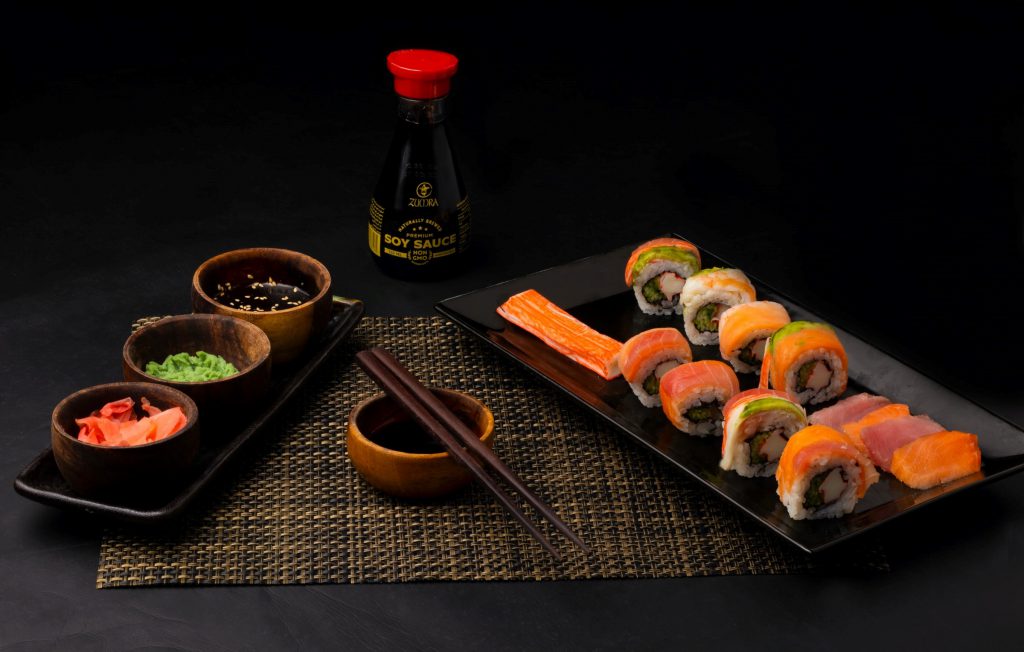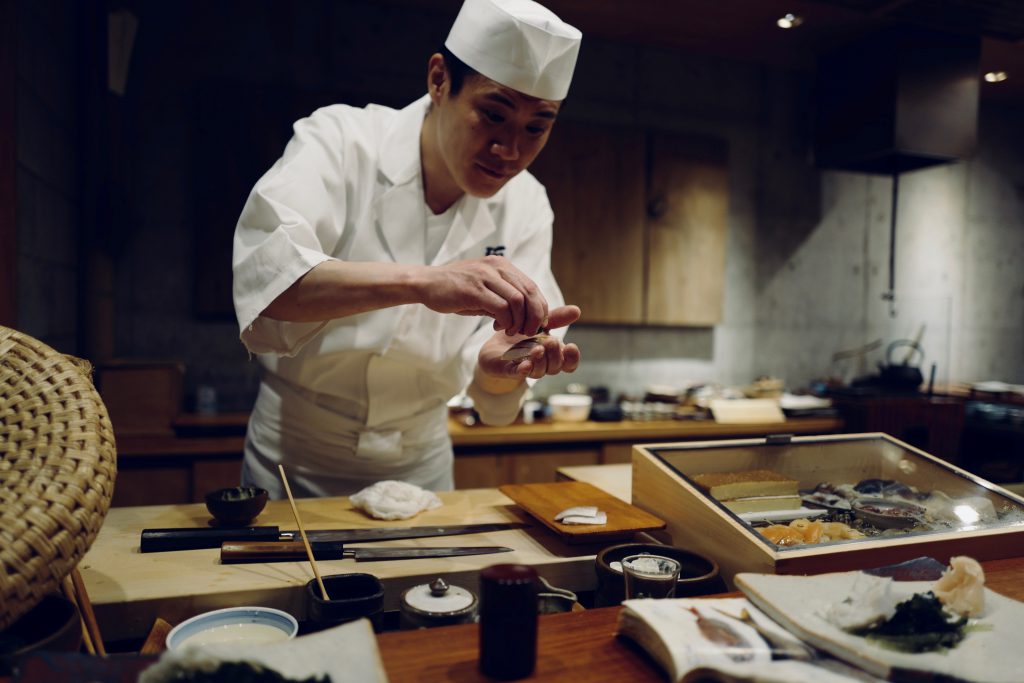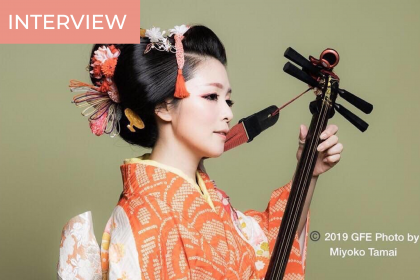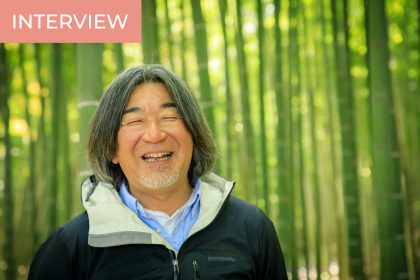Ugo Bataillard is committed to helping foreign brands discover the rewards of entering the Japanese food and beverage market. As CEO and co-founder of GourmetPro, he partnered with COO Vincent Nicol to form an exclusive network of local consultants to support international brands of all sizes.
In this interview, Ugo and I discuss his entrepreneurial journey, his passion for Japan’s culinary culture, and why the Japanese food and beverage market is worth pursuing, despite its numerous challenges. Read on for an inside look into one of Japan’s most fascinating industries.
Japan is a hard market to enter. It also is home to a population with refined culinary tastes. However, there’s a lot of opportunity here.
What is the inspiration behind GourmetPro?
We first came up with the idea for GourmetPro when I was working at Shippio, a freight forwarding company moving goods around the world. During that time, Vincent contacted me via LinkedIn. I saw that he had experience in the food and beverage industry. He had just quit his job and wanted to network. Considering our backgrounds, I thought we could come up with some good ideas.
We talked a lot about the Economic Partnership Agreement (EPA) between Europe and Japan, and its potential to create business opportunities, especially in the supermarket industry. My first idea was to do business matching to help small producers in Europe and Japan engage in direct retailing. Initially, I approached this as an engineer. The original idea was to build an industry-specific platform. However, I had tried that approach before, and I didn’t want to do that again. So, instead, I started by interviewing restaurant owners and retailers. I learned that business matching was only 10 to 20% of the problem. The real problems were logistics and product strategy. Because of this, we decided to create a consulting company.
So, how would you explain your business to those who aren’t familiar with international logistics? In other words, what’s your elevator pitch?
Japan is a hard market to enter. It also is home to a population with refined culinary tastes. However, there’s a lot of opportunity here. We help overseas companies enter the Japanese market by providing them with strategic advice and helping them execute their plans by finding the right partners, such as distributors. We do that by connecting them with local experts and consultants.
A Passion for Food, Culture, and Travel
The culture here feels closer to me than that of other western countries.
How does your work with GourmetPro relate to your passion for Japan?
Currently there are a lot of companies overseas entering the Japanese market. This is interesting, as it brings new flavors to Japan. However, I also want to bring Japanese products to the rest of the world. There’s a lot of great craftsmanship in Japan but producers are struggling because they’ve never had to export before, and the domestic market is shrinking. Additionally, Japanese tastes are becoming more and more westernized, which makes it harder to increase domestic sales.
At the same time, the world is also becoming more aware of Japanese flavors and are ready to pay premium prices for them. So, in Japan, the prices are going down, but in the rest of the world there is more and more opportunity. So that’s something I would really love to work on. There are so many small Japanese gems that produce teas, soy sauce, sake, miso, and so on. These small producers have been practicing their craft for hundreds of years and are now struggling to pass the flame to the next generation.

Is there a more personal reason that you’re interested in Japan and the food industry in particular?
Well, I’m French, so I have a natural affinity for food [laughs]… I mean, it’s true—the education around food in France is the same as in Japan. The culture here feels closer to me than that of other western countries. This doesn’t seem obvious at first. But somehow, the depth of the culture, the long history of the country, and the food, make us similar. That’s why a lot of French people are really interested in Japan and vice versa.
My second point is that I love traveling in Japan. Traveling as a tourist is nice, but you’ll never get to go to the kinds of places that you would for business. Traveling for work is more interesting. You actually meet people while they are involved in their livelihood in remote places.
To enter the Japanese market, you need to be ready to run a marathon, not a sprint.
A Revolving Door for Foreign Brands?
Earlier, you mentioned that you help foreign brands enter the Japanese market. As a long-term resident of Japan, I’ve seen some of my favorite brands repeatedly enter and exit the market. Can you explain what’s happening here?
Japan being a Galapagos market is not just a concept—it’s a reality. To enter the Japanese market, you need to be ready to run a marathon, not a sprint. It will cost a lot of money just to make mistakes and learn from them. A lot of companies aren’t up for that, and that’s why they arrive and then leave. Some of them keep going, but they don’t really learn from their failures.
A common failure that these companies experience has to do with quality standards. They come into the country thinking that their products are the best until importers start pointing out flaws in packaging, product quality, and so on. Good quality directors can actually learn from this experience. If they make it through the quality control process, then they learn a lot about their own supply chain because of Japan’s high standards. Sometimes, this results in better products for other markets. For example, Vincent once worked with a French cheese company that entered Japan. The Japanese office helped them understand a lot of quality issues, and the company used this knowledge to provide better products back in France.
I can see why a company might enter the market and give up once, but what about the ones that have entered and exited the market multiple times?
I think these companies might be chasing trends. For example, they failed in the market once but two years later, they notice a trend for their product category. They assume their past failure was just a timing problem and they try to enter the market again in the exact same way, which often leads to another failure. You have to remember that Japan is one of the largest markets in Asia and the world. So, even if you fail once, it’s tempting to try again.
How to Achieve Success in Japan
So how can foreign food and beverage brands successfully resonate with Japanese customers?
One practical way to do this is to have people on the ground in Japan. This is how our consultants help our clients. Don’t try to operate remotely or leave everything up to an importer. You need to be able to ask the right questions and find the right insights in order to understand the consumer. Either send people from where you are or hire people locally.
Additionally, storytelling—the culture and history behind a brand—is really important. As I mentioned earlier, a lot of consumers here are well educated regarding food. On top of that there are a lot of people deeply passionate about food—you could even call them food otaku [enthusiasts]. So focusing on storytelling through copywriting is really important to appeal to the cultural appreciation for tradition and craftsmanship. Some brands may see this as gimmicky but in reality, without storytelling, you’re going to miss out on a lot of opportunity.
You don’t want to lose your exoticism. The fact that your product is imported can actually be valuable.
How do Japanese consumption habits compare to those of other countries?
For one, there’s Japan’s gift giving culture. There are a lot of premium food products in Japan that are designed more as an offering than for consumption. This ranges from gifts given as omiyage (travel souvenirs) to gifts for special occasions. So being a premium imported product that can be purchased at a high-end department store, such as Isetan, can be an important strategy for certain brands.
Another point to keep in mind is that Japanese youth tend to be frugal. This means that young people can be less international than the older generation which lived through Japan’s economic bubble. The older generation traveled a lot and is really into gastronomy. So, this generation is often a better target for imported products, which is not always obvious to people entering the Japanese market.
You previously mentioned the importance of packaging. What are some common packaging mistakes that foreign brands make in Japan?
One mistake brands make is simply using their existing packaging and hoping for the best. A corollary to this is that usually the format is too large—your product can’t be too large to fit on store shelves. Because distribution in Japan is expensive, your imported product is likely going to be at a higher price point than it would be elsewhere. You’ll need a package and format strategy that matches the premium market that you now exist in.
With this in mind, you don’t want to make your product too Japanese. You don’t want to lose your exoticism. The fact that your product is imported can actually be valuable.
Final Thoughts: Is the Japanese Market Worth It?
If you can succeed in Japan, you can succeed pretty much everywhere.

Considering the challenges we’ve discussed and the fact that the Japanese population is shrinking, is the Japanese market worth pursuing?
Japan is still a large market, even if it’s shrinking. Even if Japan’s economy falls to the fifth or sixth largest in the world, it will still be one of the top markets in Asia, no matter what. That’s a big deal.
Secondly, as the common saying goes, if you can succeed in Japan, you can succeed pretty much everywhere. If you go through the learning process—measuring up to the quality standards and building resilience—you will be in a much stronger position to enter any other market in the world.
So, there’s a lot of learning and opportunities to be found here because there’s a lot of people. You can find a market for almost any kind of product if you’re smart and resilient enough.




